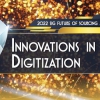Why Hiring Professionals Should Take a Skills-Based Approach
Saving time and money while maintaining high standards have always been important issues for hiring professionals in the sourcing space. Yet with Covid having impacted the job market in the past year, the pressure to fill roles with the right candidates has never been greater.
Clearly, hiring professionals need smart solutions that can get results while maintaining agility and cost-effectiveness. Old methods of hiring like the resume alone just don’t cut it anymore, especially in an economy where people are shifting careers more than ever.
Skills-Based Approach Overtaking the Linear Career Path
In the past, career shifting was an outlier, something people didn’t often do willingly. Today, career shifters are becoming the norm. In fact, research has found that the average employee will change careers 5-7 times during their working life.
The Coronavirus pandemic has simply accelerated this already rising trend. As industries have been shaken up due to the pandemic, more people are now applying for jobs outside of their previous industries. Obviously, industries like hospitality, travel and aviation have been particularly affected by changes in the past year. Employees have been driven to seek employment in other areas — some out of necessity, and some simply out of a desire to change their careers to future-proof their employability.
In addition to industry changes driven by economic factors, the World Economic Forum recently predicted that 97 million new roles could emerge following the pandemic, due to the impact of technology on the labor market. Some of these roles don’t exist, but will in the near future.
It’s important that candidates are prepared to sharpen their skills to meet the needs of these new roles; equally, it is important that employers and recruitment professionals understand the changing needs of an information-led, technology-driven economy and start to shift their approach to recruitment in order to find the right candidates for these new roles.
Soft Skills are Just as Important as Hard Skills
In response to all of these changes in the workforce, companies have to rethink how they hire. They must ensure that they are prepared for the new business landscape by adjusting how they hire. This means focusing more on the skills that an employee can bring to the table, rather than simply a linear employment history based on experience alone.
The shift towards a skills-based employee profile is already happening. The remote working revolution has already proven the value of soft skills such as communication, time management, and leadership across time zones and within virtual spaces. It’s not enough that a candidate has the right education and experience for the role; today’s candidate must also possess the soft skills necessary to thrive in a remote environment and collaborate with teams across time zones.
It bears mentioning that this is just one example of the application of soft skills. Other ways in which soft skills are useful is when they are transferable. For example, an airline pilot looking to shift careers not only possesses the technical skills to fly aircraft, but also possesses soft skills such as grace under pressure, the ability to think quickly and respond to changing situations decisively.
These are examples of soft skills which are extremely valuable in situations outside of aviation. Hence, an airline pilot seeking a career change could use those soft skills to his advantage. A savvy, modern recruiter would be able to see that such a skill set could be a big asset in a different corporate setting.
Career Shifters Driving Dynamism in the Modern Workplace
In addition to individuals changing careers altogether, there’s also now a sizable contingent of people whose careers are evolving thanks to fast-evolving tech capabilities impacting their existing roles. Career sectors such as retail or logistics, for example, have been completely transformed due to digitization in recent years. Covid-19 has further accelerated digital transformation in many industry verticals.
In many cases, this means that employees working in these industries have had to upskill to remain competitive in their fields. Digital transformation has also provided the opportunity for those with transferable skills to enter new sectors.
Companies can learn from these shifting dynamics by constructing a dedicated, agile workforce that is better equipped to solve problems and adapt to future working conditions. By including career shifters in their employee pools, companies can increase diversity and upgrade the “brain power” within their organizations. People with transferable skills often come with unique perspectives that can help solve problems in new ways and invent better ways of doing business.
Recruitment Professionals’ Approach to Career Shifters
Given these changing dynamics giving rise to a robust, skills-based employment marketplace of career shifters, recruitment and HR professionals must stay on the ball by changing how they look at recruitment altogether.
Using resumes alone isn’t enough anymore. Recruitment professionals need a more holistic picture of each candidate in order to see the full potential of what each candidate can bring to a role.
This is where HR technology can help. Designing new ways of looking at candidates that extend beyond the resume makes for smarter hiring. Much of the recruitment sector has already digitized through the use of various softwares that improve hiring information, such as applicant tracking systems (ATS) and skills assessment and personality testing.
Onboarding this type of software is a step in the right direction, but recruiters must be mindful that candidate data doesn’t become static. Because candidates are always growing their skills (even if staying within the same role), it’s important that HR data reflect this.
Today’s recruiters must be tech-savvy in a way that allows them to see the full spectrum of skills that each candidate possesses. Then those skills can be matched to an employer. Therefore, a recruiter will hire for an open role based on both hard and soft skills, rather than based on a cursory job description or work history presented on a resume.
Taking a skills-based approach when it comes to both the role and the candidate is more thoughtful and will yield more accurate matches.
Changing Recruitment By How Roles are Advertised
As recruitment and HR professionals shift toward a skills-based future of work, in addition to looking at transferable skills, they’ll also need to change how they advertise for roles.
In the past, roles were advertised in a two-dimensional fashion. A certain responsibility needed to be filled, and the attributes of that responsibility were listed and hired for. Today, companies don’t look at roles in silos. Many forward-thinking organizations are looking at the “big picture” to hire teams that can make meaningful contributions to the organization as a whole.
What does this mean for hiring professionals? It means not hiring for the role, but instead hiring for problems that need solving. Rather than writing a checklist of qualifications and experience required, advertising the role as solving a specific problem leaves a more open-ended approach that can be filled more productively by those with the right skills to tackle it.
Hiring for Jobs of the Future
None of us are sure what the future job market will look like. But hiring professionals can look at the trends driving the workforce now, such as digitization and skills-based hiring, and see broadly where these trends are taking us.
It’s time to give up the old approaches to recruiting and hiring and take a more dynamic view of each candidate and each role. Using a tech-driven, skills-based approach is a better way of problem solving; one that will take the recruitment industry confidently into the future of work.







